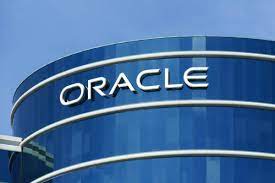Shares of Oracle (ORCL) are trading roughly flat following the company’s release of its Q3 (Feb) earnings report last night as it surprised investors with its first earnings miss in the past five years. The share price recovered somewhat during what was a generally positive earnings call, with the company offering upside guidance despite facing FX headwinds, as the dollar has been rising.
In Q3, adjusted EPS fell 3% yr/yr to $1.13, which was below consensus and below prior guidance of $1.14-1.18. The miss, following a big upside quarter in Q2, was a surprise; Oracle very rarely misses on EPS, as it tends to guide conservatively. It was a relief that Oracle’s Q4 (May) EPS guidance, given during the call, of $1.40-1.44 exceeded analyst expectations even though Oracle is facing an expected $0.05 FX headwind in Q4.
So, what happened? Non-GAAP operating margin dipped to 46% from 47% a year ago, but the main culprit for the miss was lower than expected results at several investments. Oracle estimated that Q3 EPS was hurt by $0.05 because of a decline in the share price of gene sequencing company Oxford Nanopore and an operating loss at Ampere, which makes ARM Server Chips. Add back that $0.05 and EPS would have been in-line. The good news here is that the miss did not derive from Oracle’s core business, so investors are not punishing it as much.
Oracle’s core business performed well in the quarter. Strength was especially prominent in its Cloud business, where revenue when annualized has now reached $11.2 bln, up 26%, and should remain in the mid-20% range in Q4. Oracle has been dominant on the on-premise side for a long time, but it has been aggressively moving to the cloud. Its fast-growing Cloud business continues to become a larger proportion of the overall business.
This quarter was generally good despite the rare EPS miss. The shortfall stemmed from certain investments and FX headwinds rather than from Oracle’s core business, and its Cloud segment continues to grow strongly. The Cerner deal should be closing soon, perhaps in Q4 (May) or soon thereafter. Oracle operates in all industries, but healthcare and financial services are two areas of focus. Cerner was a big bet on Oracle’s ability to tackle healthcare in a big way.





